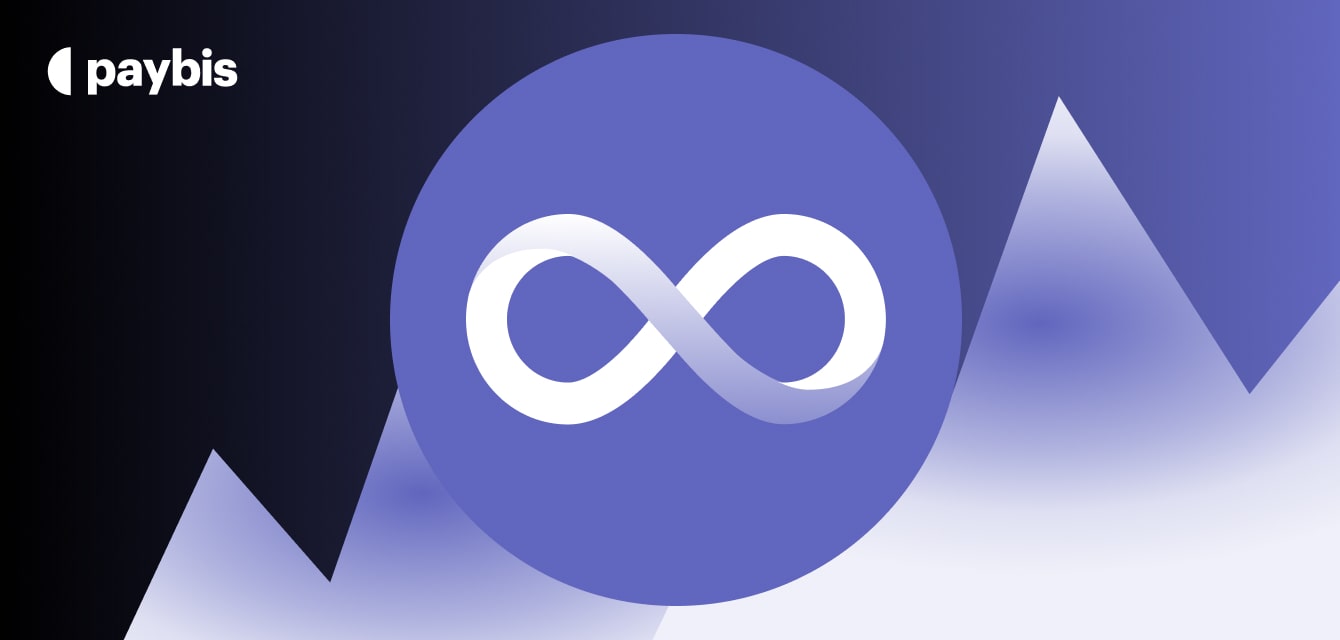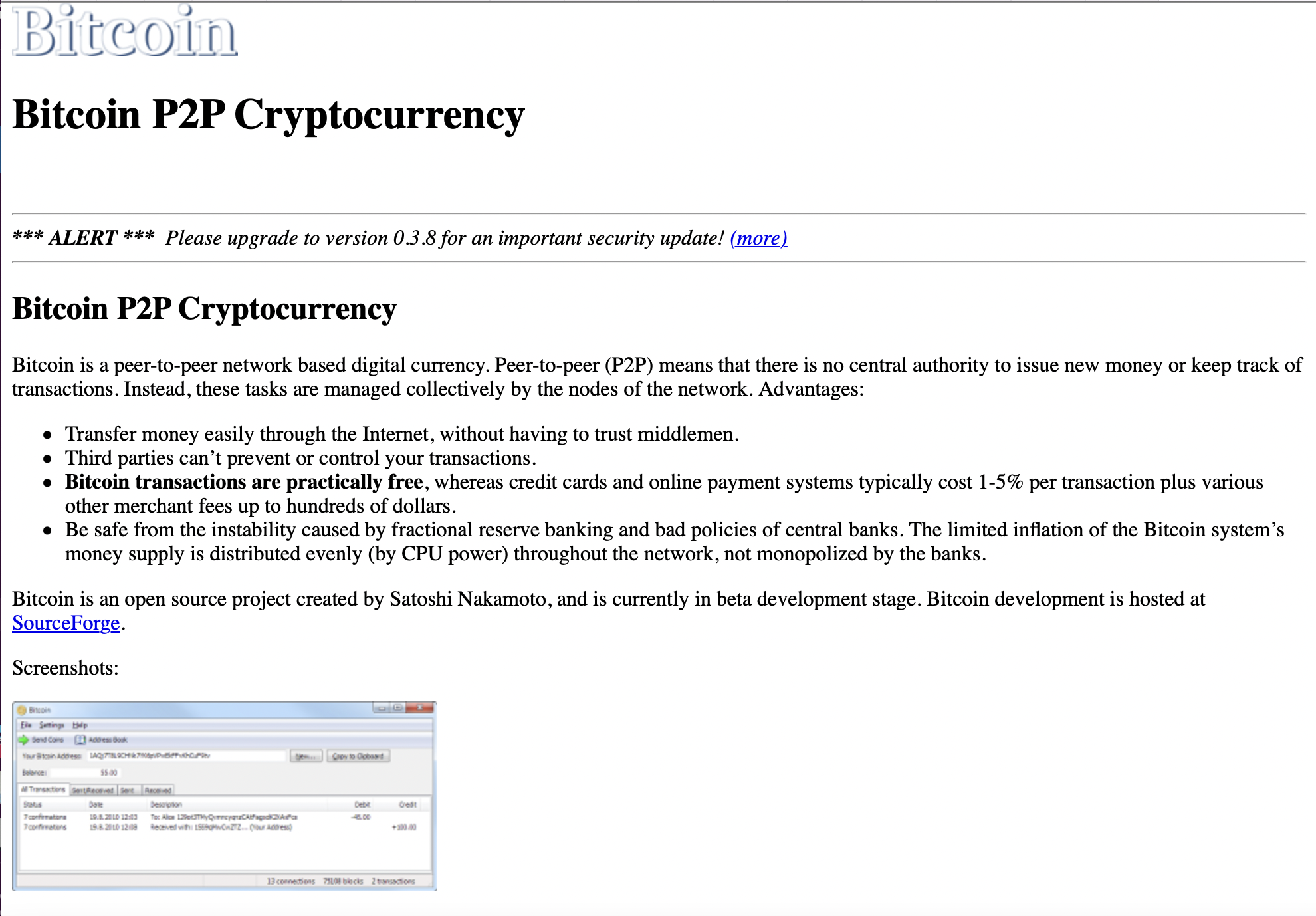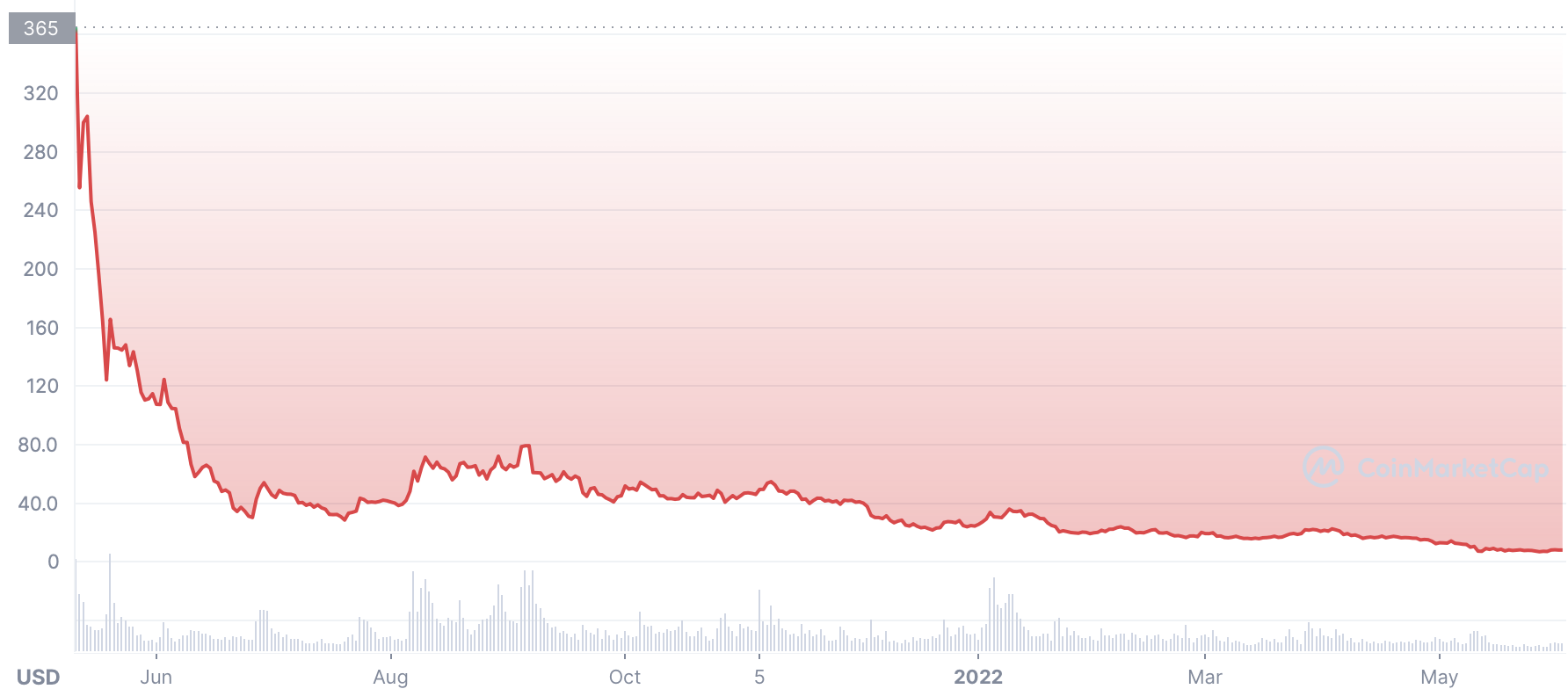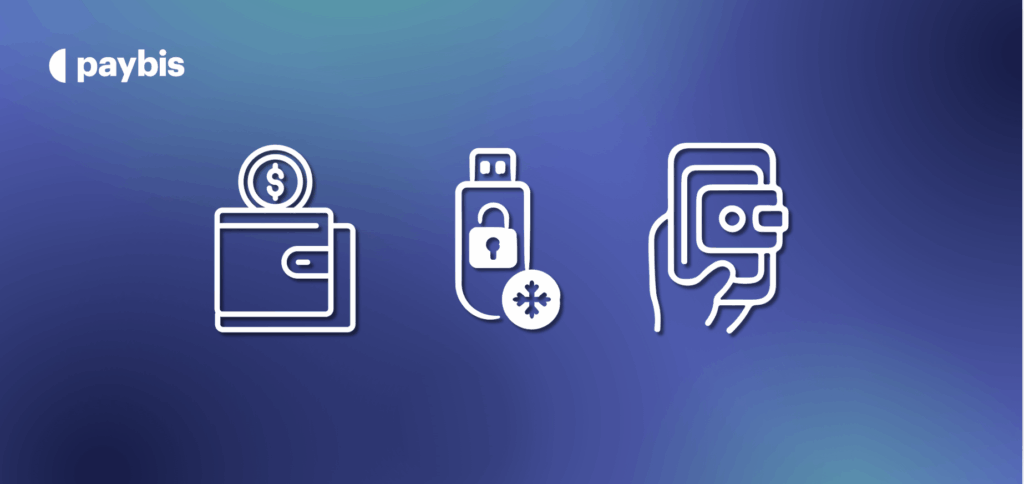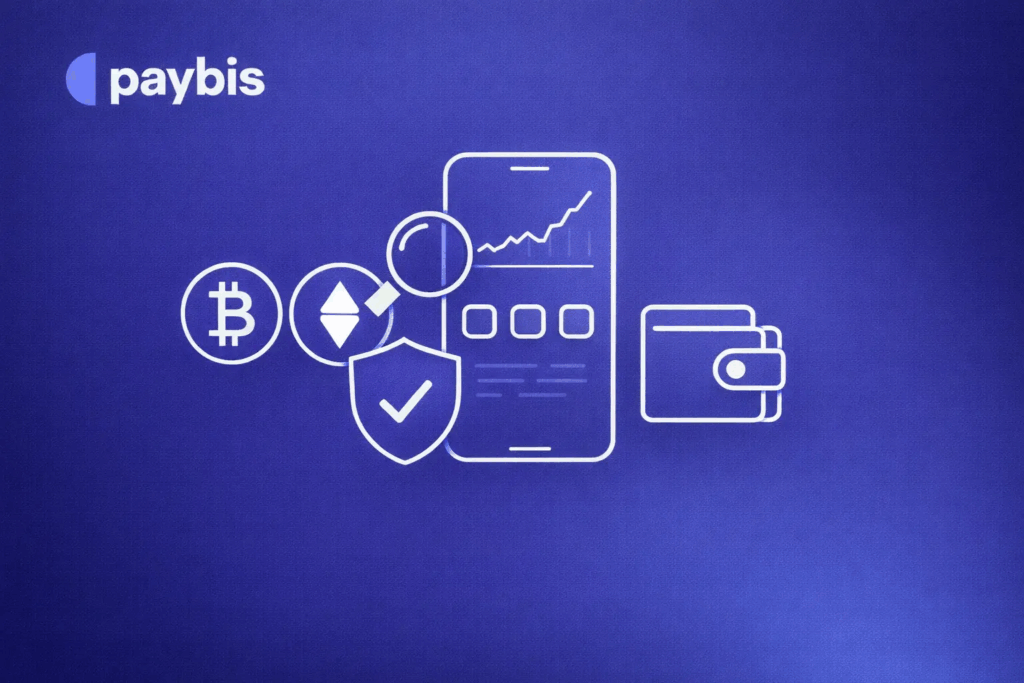Internet Computer Price Prediction: Go Big or Go Home
The Internet Computer (ICP) definitely hopes to go big. Launched in May 2021, it aims to do nothing less than move the entire Internet on the blockchain – not just payments, not just dApps, but the entire Internet. The project team envisions that, by the 2040s, the ICP will be larger than today’s Internet, hosting key social infrastructure.
That’s a bold claim – and it’s not just all talk. ICP already has some solid technology behind it, and it is backed by an all-star team of experienced crypto developers. Its price action, however, has been disappointing, at times losing up to 99% from its all-time high.
Table of contents
- A Brief Introduction to Internet Computer
- Internet Computer Price History: High Hopes and Reality Check
- Internet Computer 2023 Price Overview
- Internet Computer 2024 Price Overview
- Internet Computer Price Prediction for 2025: Is The Demand Still There?
- Internet Computer Price Prediction for 2030
- Analysis of the Best Internet Computer Prediction Tools
- Internet Computer Price Prediction for 2040
- Wrapping Up
A Brief Introduction to Internet Computer
As always, before we make any estimates of future Internet Computer value, let’s start with an overview of the token – what it is, what it does, and what it aims to do.
As is often the case with crypto projects, the name “Internet Computer” applies to both the blockchain itself and its native token. As a blockchain, it is capable of hosting and running all kinds of Internet applications. This includes such crypto staples as payment gateways and DeFi apps, but it goes further than that.
Eventually, it aims to store sites, portals, social networks, the Metaverse, and much more. Its stated aim is to be able to store “all of humanity’s software logic and data in smart contracts.” This iteration of the Internet is often referred to as Web 3.0, a phrase you’ll often hear mentioned in the crypto space.
The current Web 2.0, with its user-generated content, interactive sites, and social networks, has come a long way since Web 1.0, which consisted of static web pages with little, if any, interactivity. The idea is that Web 3.0 will make the current Web look like those ancient text-based sites – if you’re old enough to remember them.
Bitcoin.org back in 2010 exemplified the Web 1.0 look – all text, a few pictures, and no interactivity. Screenshot: Internet Archive
Now, that’s clearly a grand ambition that requires some fast, rugged ,and, above all, scalable technology if it is to succeed. And indeed, the entire protocol has been built with scalability in mind.
The key to achieving this is decentralization. Much like the traditional Internet is a decentralized network of servers, the Internet Computer is a decentralized network of computers, known as nodes. The difference is that their computing power is woven together using the Internet Computer Protocol so that the nodes basically form one large computer – hence the name “Internet Computer”.
When new nodes are added, they become part of the Internet Computer. Moreover, all the data is stored on the blockchain itself, not on any specific server. Thus, the network actually benefits from scale: the larger it is, the more computing power it has.
Any new dApps aren’t so much hosted on a specific server; rather, they’re installed on the Internet Computer which will continue working even if some nodes are taken out. This increases speed and availability: a single server failure cannot wipe out all the data that’s on it.
It’s a notable advantage over the traditional Internet and explains why the team behind ICP can so boldly claim that its protocol will host crucial social infrastructure – it would, after all, benefit from increased speed and accessibility.
From the end-user perspective, however, it’s much like using the traditional Internet. They don’t have to own the ICP tokens to interact with the protocol – they don’t even have to know they’re browsing a page on the Internet Computer. This, in turn, ensures a seamless transition.
Internet Computer Price History: High Hopes and Reality Check
The Internet Computer token is an integral part of this system. It is used as a governance token and to incentivize users to run the nodes. And, of course, it has also been used as a way to invest in the platform. So how has it fared?
Now, even though the token itself was only launched in 2021, it was first announced in 2015. It is developed by the Zurich-based DFINITY Foundation which has assembled a strong team of developers from companies like Google, Microsoft, Amazon, and Apple – to drop just a few names. It is headed by Dominic Williams, an ex-Ethereum developer.
So the expertise is there, and the project attracted funding even before it went live: all in all, it raised a total of USD 121 million both from individual and institutional investors. When the token finally went public in May 2021, it launched to much fanfare, hitting its all-time high of USD 700 at one point.
The ICP price history doesn’t look too encouraging, but the token is far from being finished. Graph: CoinMarketCap
Turns out, however, that the only way wasn’t up. The launch was soon followed by accusations that DFINITY and its early investors had dumped a notable amount of tokens on the market. This, in turn, crashed the price: just two months later the token was trading south of USD 40. A class action lawsuit against DFINITY and Dominic Williams was launched in August 2021.
Massive price drops soon after the launch, accusations of being a pump-and-dump scheme, and class action lawsuits aren’t necessarily ringing endorsements, and the price continued to tumble lower. Fast forward to May 2022, and it was hovering around USD 7 – down 99% from its brief ATH.
So what does this mean for ICP price prediction? Is the project finished?
Internet Computer 2023 Price Overview
DFINITY itself denies any accusations of wrongdoing. Moreover, you would expect that a 99% decline would destroy the token – or, if it indeed were a pump-and-dump scheme, the early investors would have packed up and left by now. Not so; the DFINITY team is actively working on the project, unfazed by the shakeups.
Now, even though it has some grand ambitions, the Internet Computer is also using its blockchain for financial purposes. In fact, as a payment system, the ICP claims some notable advantages, such as speed and interoperability. For one, its goals for 2022 include direct integration with Bitcoin and Ethereum. This would mean that ICP DeFi projects would be able to use both BTC and ETH in their smart contracts natively. Support for other blockchains is also in the works.
Moreover, DFINITY is attracting new developers. On April 12, 2022, it announced an Internet Computer hackathon, encouraging developers to create products on the platform. These can include different dApps, NFTs, games, and, of course, DeFi projects, with up to USD 6 million in prizes.
One potentially promising development is Origyn, a project running on the ICP that uses NFTs to verify and authenticate different objects. This isn’t necessarily limited to digital files. For one, Origyn has secured an agreement with a Swiss watch distributor, and its NFTs will be used to authenticate the timepieces it sells.
But what did actual price fluctuations look like in 2023? Well, unsurprisingly, the ICP token experienced notable volatility, backed by impressive value growth. The year began with ICP trading at around $3, but by mid-December, the token had surged to almost $10.
Internet Computer 2024 Price Overview
In 2024 the DFINITY Foundation introduced UTOPIA, a private virtual cloud platform for users to create personalized systems and services, all powered by ICP. The key goal of this platform is to tackle cybersecurity problems by allowing AI to oversee the native management of digital assets.
Throughout 2024, ICP accelerated its global expansion through the ICP HUBS adoption strategy. With this initiative, over 13 flagship ICP HOUSE events were introduced, alongside other major crypto and blockchain conferences worldwide.
During ICP HUBS events, attendees could learn more about the development and technology behind ICP, and various collaboration efforts and engage with other participants. No doubt thanks to these strategic moves, ICP’s market performance increased.
As a result, at the beginning of 2024, ICP was worth $13. The price shifted somewhat throughout the year, but compared to other currencies, stabilized mid-year, ending 2024 with around $11 as reported by CoinMarketCap.
Internet Computer Price Prediction for 2025: Is The Demand Still There?
Admittedly, how well ICP performs depends on many factors that aren’t yet clear. The truth is, that crypto prices aren’t determined entirely by the technical backgrounds of their underlying platforms. There are plenty of tokens that offer exciting solutions but haven’t necessarily taken off.
What we can observe now is that as of January 28, 2025, ICP is trading at $8.93, with an intraday high of $9.10 and a low of $8.60. After analysing 2023 and 2024, it’s estimated that in 2025 ICP’s price will continue showing resilience and stability.
The success of ICP depends on one key assumption: a blockchain-powered Internet makes sense and there’s demand for it. ICP itself has addressed this repeatedly: in an early roadmap, Dominic Williams states that once certain technical issues are solved, the “blockchain becomes a tamperproof and unstoppable computer with extraordinary advantages when compared against traditional IT.
This can facilitate the reinvention of enterprise systems, mass-market internet services, and the economy, as well as enable the complete reimagination of how many things work, just as DeFi reimagines finance.”
In other words, the technology is so good, that people would use it not because they are dedicated blockchain enthusiasts but because it takes the Internet to a whole new level. As far as the DFINITY team is concerned, the main task for the immediate future is to sort out the technology and start building its recognition.
Now, if ICP indeed does deliver on these promises, it would be a well-established token, and its rocky launch would look trivial in hindsight. And it doesn’t plan to stop there.
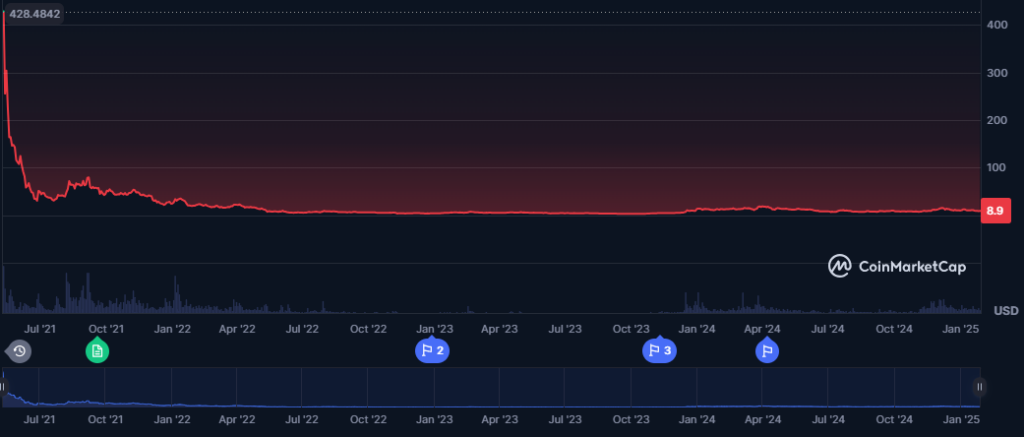
Internet Computer Price Prediction for 2030
By 2030, the Internet Computer aims to become an established standard in the tech world and start reaching new audiences.
Admittedly, the roadmap gets somewhat idealistic at this point. Just like other crypto products aim to replace the finance industry with something more accessible, the Internet Computer hopes to do the same thing to the IT sector.
So the Internet Computer would already be well known in tech circles. The next step would be to bring it to larger audiences – people who are not necessarily tech enthusiasts. To quote Dominic Williams again, “The spirit and enthusiasm within the blockchain community will have spread out far and wide around the world, and vastly more people than ever before will be building on the internet rather than closed systems.”
Simply put, the Internet Computer team believes crypto could help rebuild the entire Internet and, given the Internet’s place in modern society, the world itself.
Analysis of the Best Internet Computer Prediction Tools
We’ve said it before and we’ll say it again: any specific price points are provided only for your consideration. They most emphatically are not promises that the token will cost a certain amount of money at any given time. Rather, they illustrate the overall trend and provide some pointers for your own research.
With this in mind, let’s check some popular price prediction sites.
- Wallet Investor showcases a promising trajectory, predicting a stable increase to around $20, and moving slowly upward toward 2030;
- Price Prediction is a great deal more optimistic, although it does not see the token returning to its all-time high anytime soon. Its average price target for 2025 stands between $13.27 to $15.52. It does predict the token will pick up speed and hit $102.20 in 2030 – remember that, by this time, the Internet Computer aims to become an established standard;
- DigitalCoinPrice is also somewhat bullish, but more restrained: its average price projection is $17.09 for 2025 and $46.62 for 2030.
As you may see, the price predictions vary by a great deal – another reminder of why they should be taken with a grain of salt. A common pattern emerges, though: different price prediction models seem to believe that the high prices at launch were a bit of an anomaly, and the actual price range for ICP is much lower.
In other words, if you bought the ICP right at its launch, you may be in for the long haul. If you’re thinking of getting some ICP now, your chances look much better.
Internet Computer Price Prediction for 2040
By 2040, the Internet Computer roadmap plans to have largely accomplished its goals. The Internet Computer would, by and large, have replaced the traditional Internet, relegating the legacy infrastructure to restricted niche roles.
Moreover, the ICP would not only replace but expand on the existing Internet, leading to new developments that aren’t yet even on the radar.
If this pans out, the ICP token would be an essential building block of the future IT infrastructure. We won’t try to assign a certain price point that far in the future, but it’s safe to say you could expect a significant payoff.
For one, the Internet Computer project roadmap does not say much about its potential competitors – and, as it intends to take on the entire IT industry, it’s facing stiff competition with deep pockets. History has shown that the IT industry can actually embrace open standards and build its own proprietary products on top of them – the current Internet is a good example.
If the Internet Computer starts to gain traction, it could also face competition in the crypto space – just as the success of Ethereum gave rise to an entire class of “Ethereum killers”. This is not necessarily a bad thing, however – this would prove that the concept works, and the would-be “ICP killers” could even be interoperable with the Internet Computer blockchain.
Then there’s the issue of ongoing legal troubles. ICP is far from being the only crypto to face such issues, and it could be more of a nuisance than a real problem. Still, it could also undermine investor confidence and divert attention from development and promotion.
And, of course, it is possible that the Internet Computer is reaching too far and blockchain, while perfect for financial applications, isn’t necessarily the best Internet replacement.
Wrapping Up
ICP is proving to be a reliable and trusted crypto for both new and seasoned crypto enthusiasts. But no matter how stable it may seem, Internet Computer is still subject to volatile price changes. 2025 started off strong for cryptocurrencies as Donald J. Trump took up the presidential office, launching his win cryptocurrency which seems to have completely shifted the crypto atmosphere. Our guide seeks to provide you with more background knowledge for you to make better-informed decisions.
FAQ
Will the Internet Computer disappear completely?
Communities are key to crypto success; if the community is strong, a crypto token can even recover from attacks. The ICP has an active user and developer community, and its infrastructure is up and running. This means that it’s unlikely to disappear, especially given the gradual climb in its value.
Does ICP have a promising future?
It certainly has grand ambitions: no less than replacing a large part of the current Internet infrastructure. It also has a solid developer team to back it up. If it succeeds, the ICP token should also benefit.
Is ICP better than Ethereum?
It’s helpful to think of different cryptos as having different aims, not necessarily being “better”. Much like Ethereum, ICP also is building an entire platform, not just one blockchain. Its scope, however, is much wider than that of Ethereum.
What will the Internet Computer be worth in 2035?
This depends on whether it can reach its ambitions. According to its roadmap, it will be well on its way to industry dominance by 2035, which, of course, should also increase the value of the token.
Disclaimer: Don’t invest unless you’re prepared to lose all the money you invest. This is a high‑risk investment and you should not expect to be protected if something goes wrong. Take 2 mins to learn more at: https://go.payb.is/FCA-Info
